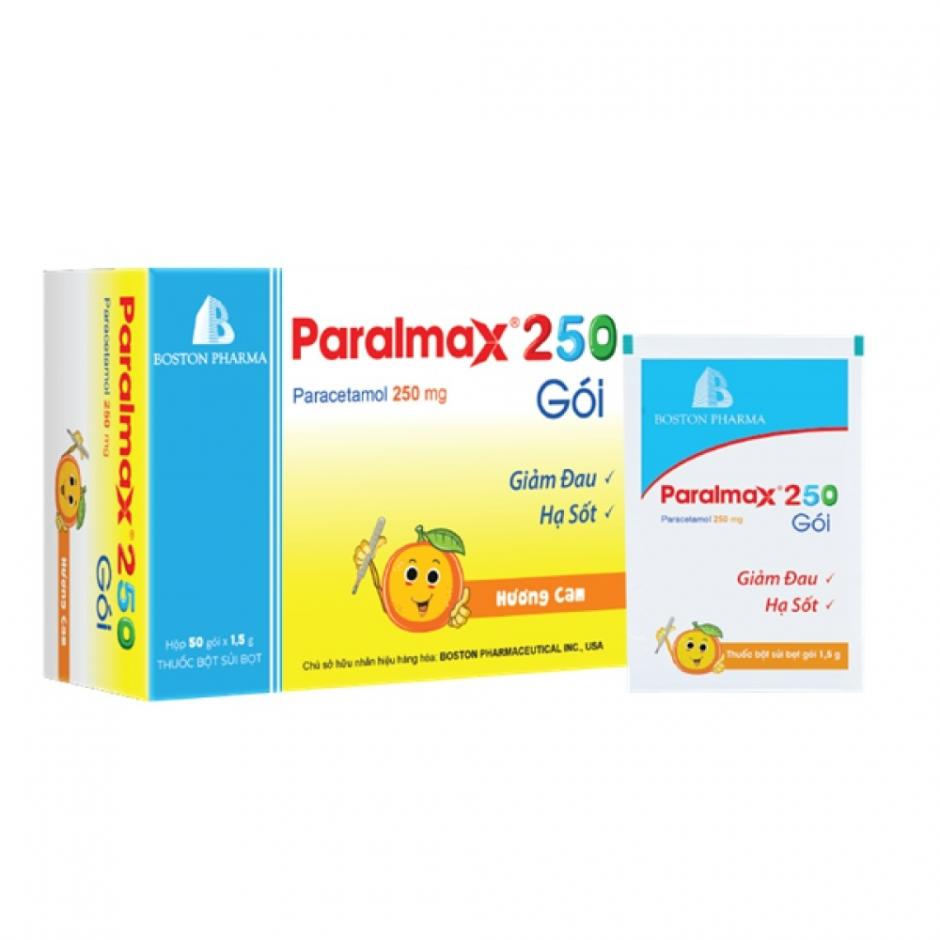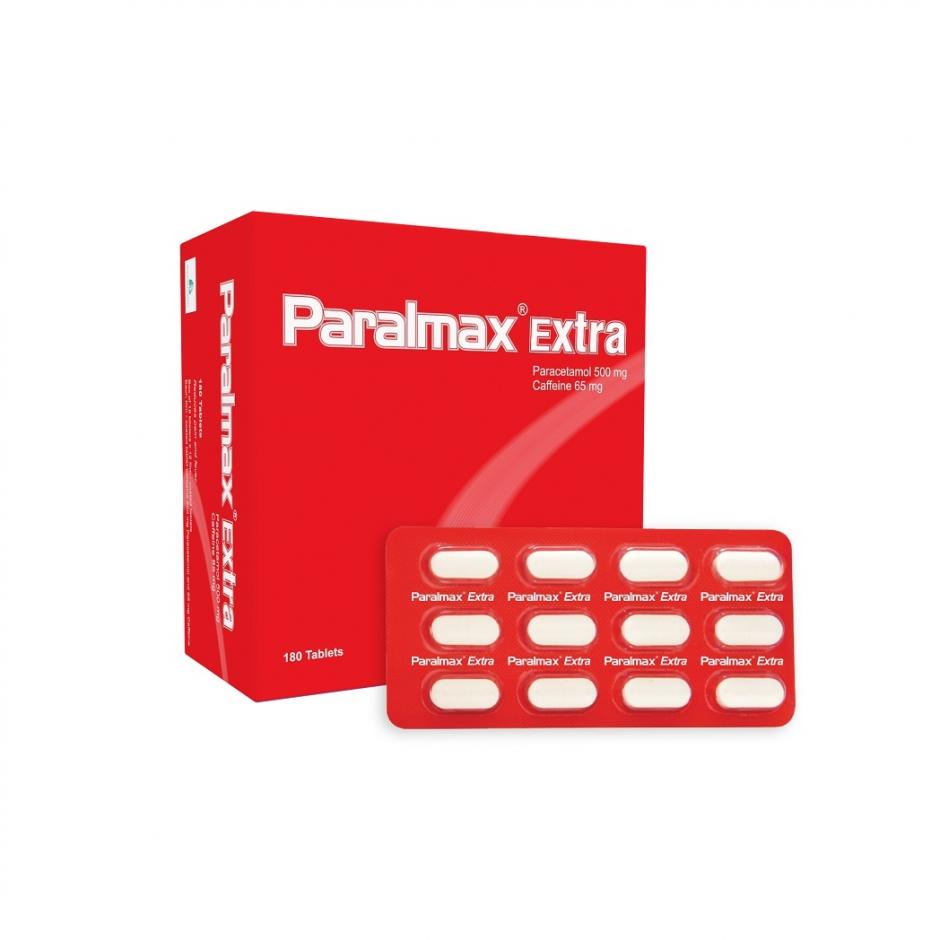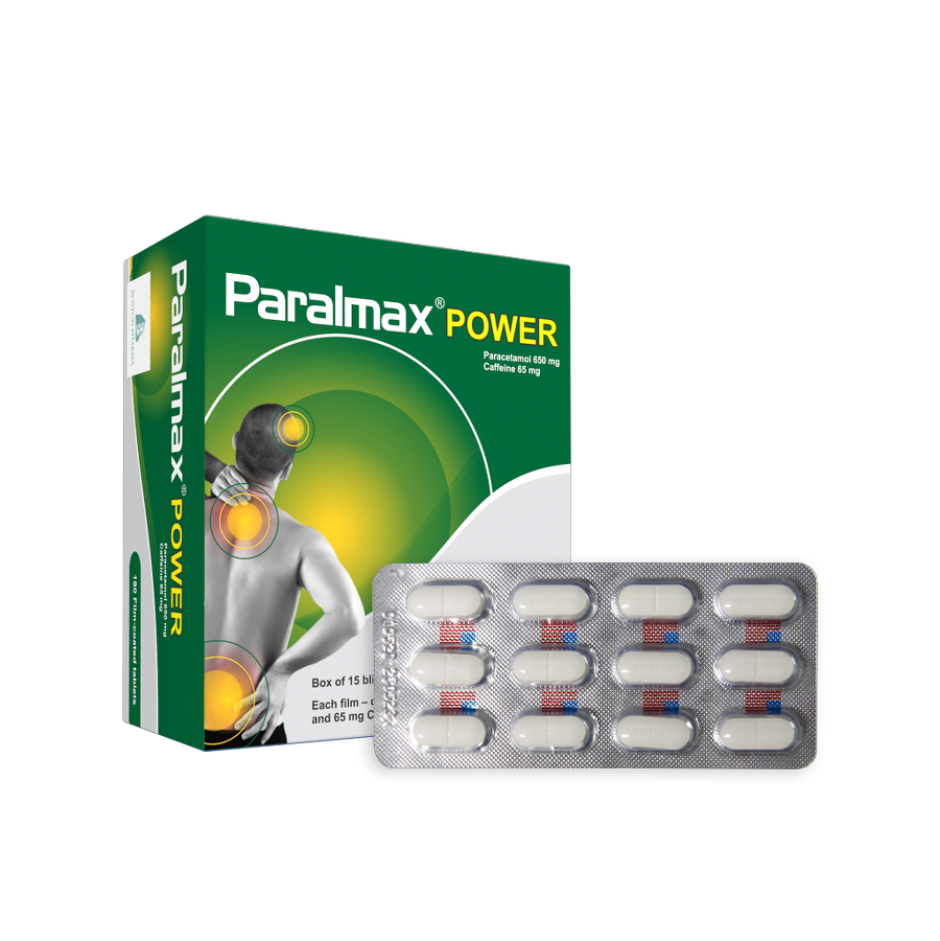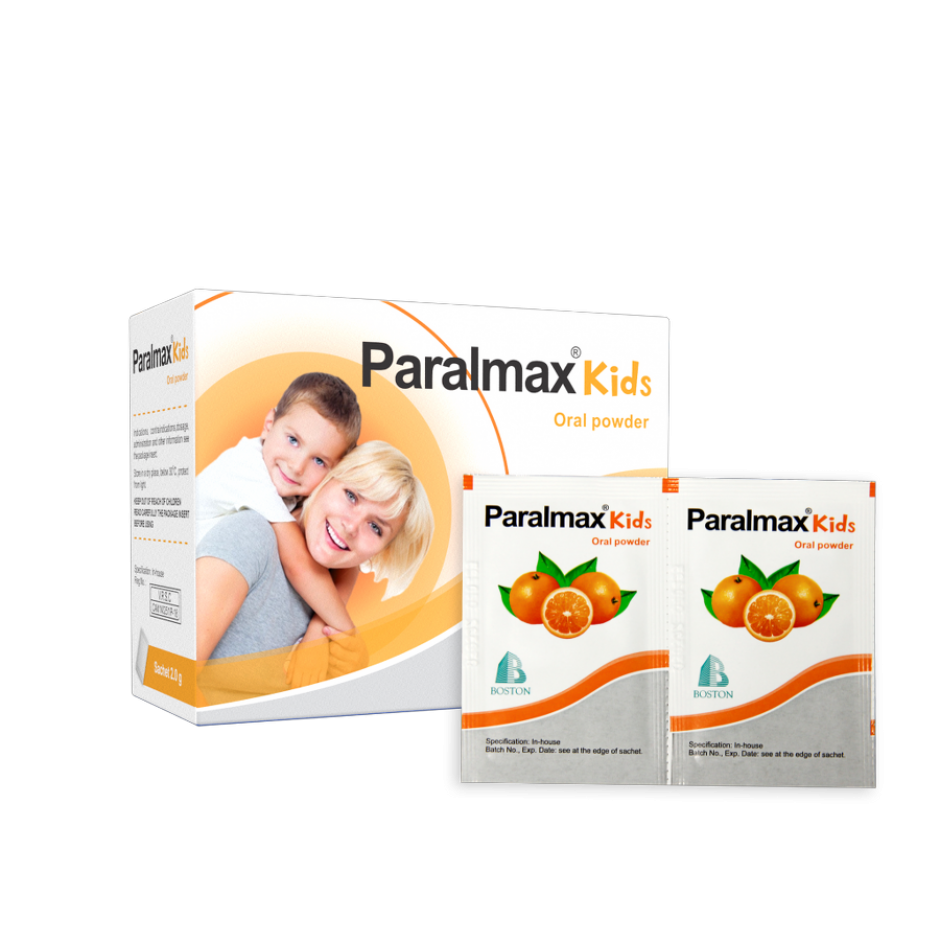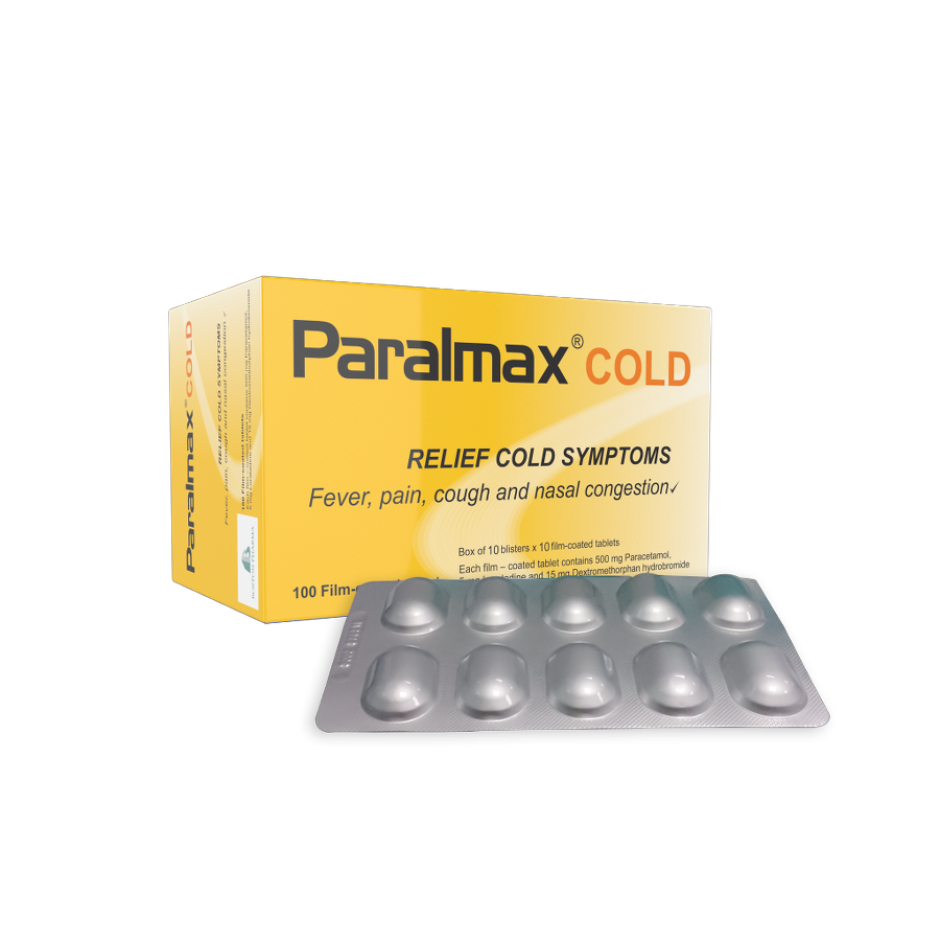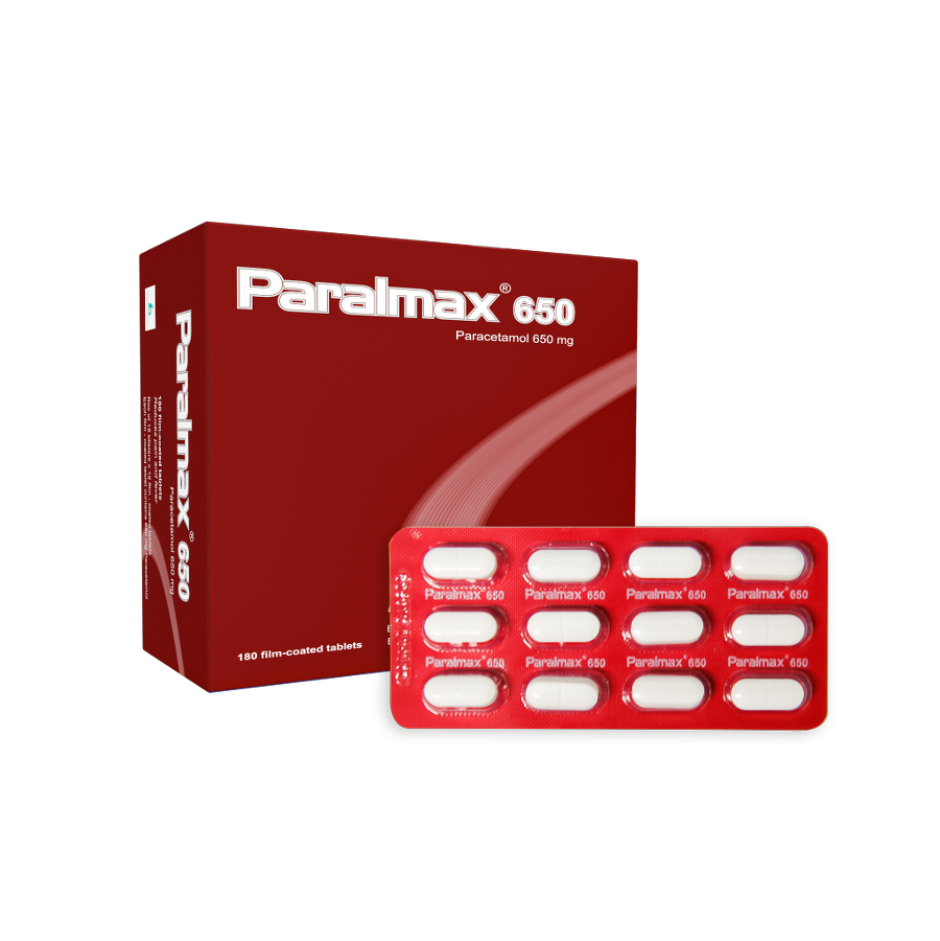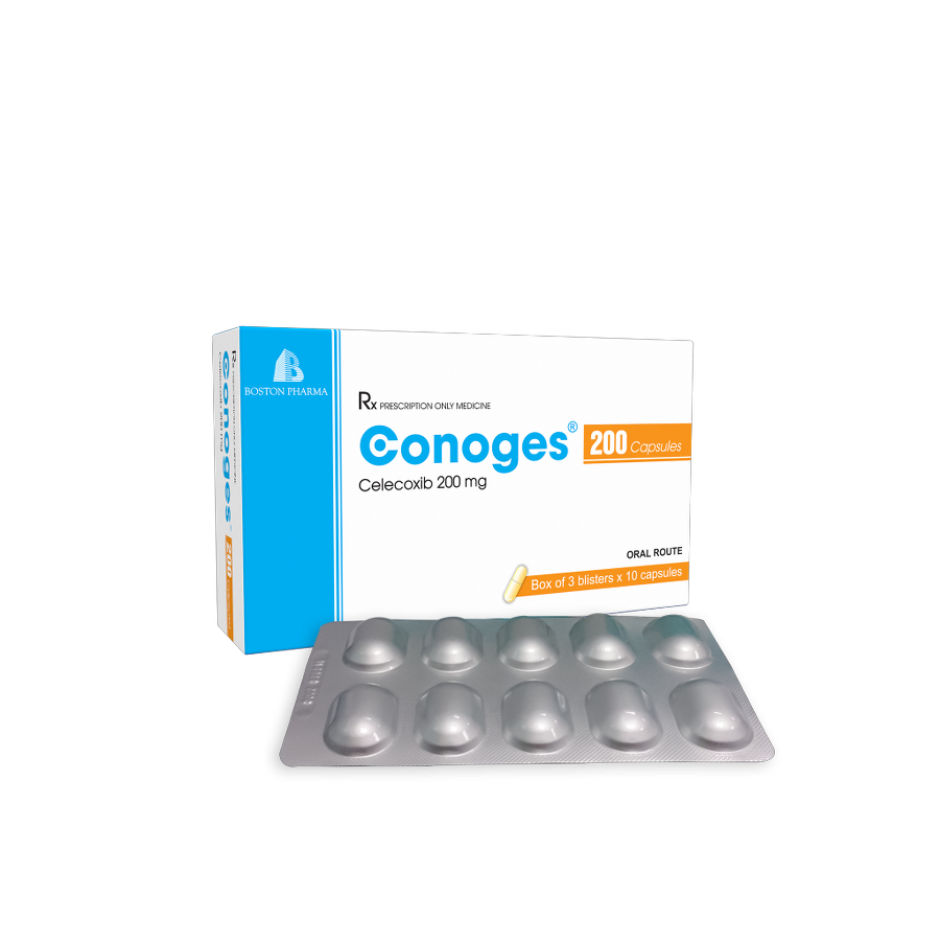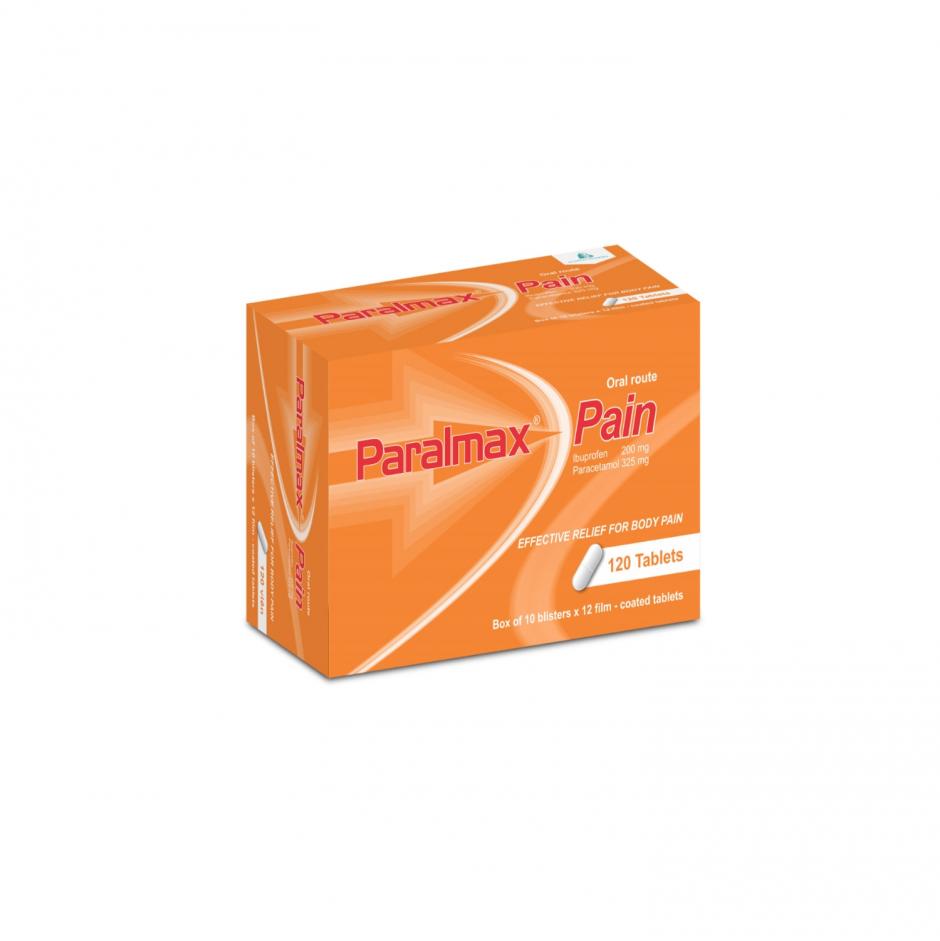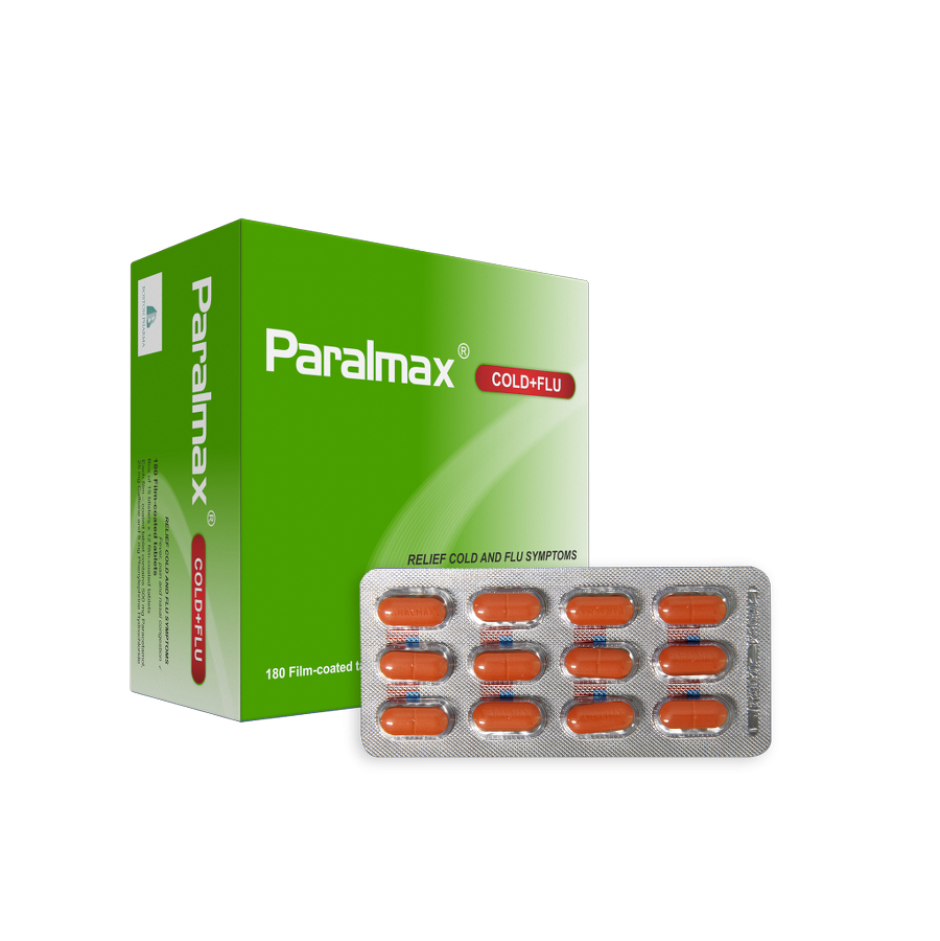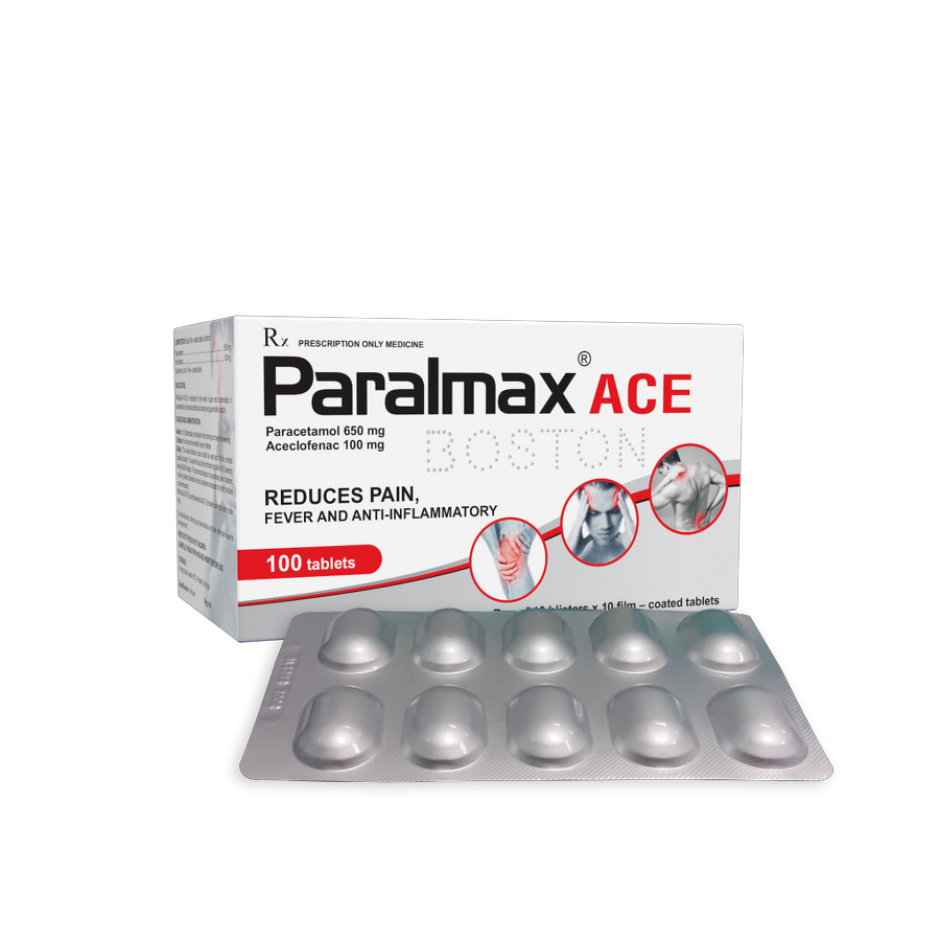ADMINISTRATION AND DOSAGE
Dosage
Adults
1 – 2 tablets × 3 times a day. Leave at least 6 hours between doses.
Do not take more than 6 tablets (equal to 3000 mg of paracetamol and 1200 mg of ibuprofen) in any 24 hours period.
Elderly
No special dosage modifications are required.
The elderly are at increased risk of the serious consequences of adverse reactions. If this medicine is considered necessary, the lowest effective dose should be used for the shortest possible duration. The patient should be monitored regularly for gastrointestinal bleeding during NSAID therapy.
Paediatric
Not recommended to use by children under 18 years.
Administration
This medicine is given orally. To minimize side effects, it is recommended that patients take PARALMAX FORTE with food.
CONTRAINDICATIONS
This product is contraindicated:
In patients with a known hypersensitivity to ibuprofen, paracetamol, caffeine or any other excipients in the product.
In patients with a history of hypersensitivity reactions (e.g. bronchospasm, angioedema, asthma, rhinitis, or urticaria) associated with aspirin or other NSAIDs.
In patients with active, or a history of recurrent peptic ulcer/ haemorrhage.
In patients with a history of, or an existing gastrointestinal ulceration, perforation or bleeding, including that associated with NSAIDs.
Patients with defects in coagulation.
In patients with severe hepatic failure, severe renal failure or severe heart failure (NYHA class IV).
During the last trimester of pregnancy due to risk of premature closure of foetal ductus arteriosus with possible pulmonary hypertension.
WARNINGS AND PRECAUTIONS
It is recommended to use the lowest effective dose for the shortest duration necessary to control symptoms. If the symptoms persist or worsen or if the product is required for more than 3 days, consult your doctor.
Do not exceed the recommended dose. In order to minimize risk of overdose and adverse effects, do not use concomitantly with other NSAIDs or paracetamol containing products without prescription. Excessive intake of caffeine (e.g. coffee, tea and some canned drinks) also should be avoided while taking this product.
The hazards of paracetamol overdose are greater in patients with non-cirrhotic alcoholic liver disease. Immediate medical advice should be sought in the event of an overdose, even if the patient feels well, because of the risk of delayed, serious liver damage.
Ibuprofen can cause anaphylactoid reaction. Avoid use this product in patients with aspirin triad (aspirin sensitivity, asthma, nasal polyps) and use with caution in asthma patients.
Serious skin reactions, may be fatal, including exfoliative dermatitis, Stevens-Johnson syndrome (SJS), and toxic epidermal necrolysis (TEN), have been reported very rarely in association with the use of paracetamol and ibuprofen. Patients appear to be at highest risk of these reactions early in the course of therapy, the onset of the reaction occurring in the majority of cases within the first month of treatment. Use of this product should be discontinued at the first appearance of skin rash, mucosal lesions, or any other sign of hypersensitivity.
Caution is required in patients with systemic lupus erythematous (SLE) and mixed connective tissue disease disorders due to increased risk of aseptic meningitis.
Clinical studies suggest that use of ibuprofen, particularly at a high dose (2400 mg/day) may be associated with a small increased risk of arterial thrombotic events (e.g., myocardial infarction or stroke). Overall, epidemiological studies do not suggest that low dose ibuprofen (e.g. ≤1200mg/day) is associated with an increased risk of arterial thrombotic events. As a precautionary measure, ibuprofen should be use with caution in patient with cardiovascular diseases or patients with risk factors for cardiovascular events (e.g., hypertension, hyperlipidaemia, diabetes mellitus, smoking).
Long term use of ibuprofen may cause unopposed constriction of renal afferent arterioles, and thus decrease the glomerular perfusion and glomerular filtration rate, which can cause fluid retention, edema or some serious complications (e.g., renal impairment). The risk of renal toxicity increases in patients with renal or hepatic impairment or heart failure, in geriatric patients, in patients with volume depletion and in those receiving a diuretic, ACEI (angiotensin converting enzyme inhibitor) or ARB (angiotensin II receptor blocker). These patients should be only treated with this product after carefully consideration, and their renal function also should be monitored.
Ibuprofen is a GI irritant. Some serious GI toxicity (e.g., bleeding, ulceration, perforation) can occur at any time during treatment, with or without warning symptoms or a previous history of serious GI events. The risk is higher with increasing NSAID doses, coadministration with corticosteroids, in patients with a history of ulcer, particularly if complicated with haemorrhage or perforation, in the elderly, smokers, those with alcohol dependence and those with poor general health. These patients should commence treatment on the lowest dose available. Combination therapy with protective agents (e.g. misoprostol or proton pump inhibitors) should be considered for these patients, and also for patients requiring concomitant low dose aspirin, or other drugs likely to increase GI risk.
Long term use of ibuprofen and paracetamol may inhibit platelet aggregation and prolong bleeding time. Concomitant use with other drugs that also prolong bleeding time should be avoided.
PREGNANCY AND LACTATION
Pregnancy
There is no experience of use of this product in humans during pregnancy. In view of the known affects of NSAIDs on the foetal cardiovascular system (risk of closure of ductus arteriosus), use in the last trimester is contraindicated. The onset of labour may be delayed and duration increased with an increased bleeding tendency in both mother and child. NSAIDs should not be used during the first two trimesters of pregnancy or labour unless the potential benefit to the patient outweighs the potential risk to the foetus. On the other hand, caffeine is not recommended for use during pregnancy due to the possible increased risk of lower birth weight and spontaneous abortion associated with caffeine consumption.
Lactation
Ibuprofen and its metabolites can pass in very small amounts (0.0008% of the maternal dose) into the breast milk. No harmful effects to infants are known.
Paracetamol is excreted in breast milk but not in a clinically significant amount. Available published data do not contraindicate breastfeeding.
Caffeine in breast milk may potentially have a stimulating effect on breast fed infants. Therefore this product should not be used if you are breast feeding.
SHELF-LIFE
36 months from the manufacturing date. Do not use after the expiry date.



_Paralmax_fore_900x900.png)
